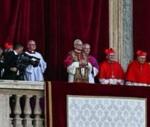You are here
‘There is no Plan B’ for Syria
Apr 23,2014 - Last updated at Apr 23,2014
During my recent visits to Beirut and Damascus, unidentified sources I interviewed revealed uncomfortable truths that the Western powers and their allies are determined to conceal or ignore.
The hullabaloo raised about Syria’s declaration that it intends to hold its presidential election on June 3 is phoney.
The US and UN have denounced the poll on the ground that the expected re-election of incumbent Bashar Assad will torpedo the Geneva peace process.
The dysfunctional expatriate opposition National Council — which has no political or armed presence on the ground in Syria — says it will not take part in negotiations if this happens.
The Geneva peace process has amounted to nothing and is not expected to be relaunched.
The plan for an end to violence and a transitional government put forward at a conference in Geneva in June 2012 was never a viable option, a source well acquainted with the negotiations told this correspondent.
The plan was based on the false US and its allies’ belief that the government was under serious challenge because the army had made “tactical withdrawals from indefensible” areas.
Consequently, the US thought the government, facing collapse, would agree to the creation of a transitional authority that would take over from Assad.
The source dismissed the notion that the government was going to fall in 2012 or early this year when the Geneva II conference was held.
Instead, while the US, Qatar and Saudi Arabia were trying to create a functional opposition to attend talks, the Syrian army rallied and began to recapture territory occupied by insurgent factions. This strengthened the government’s hold on the country and on power.
Meanwhile, the Western powers discovered to their discomfiture that the so-called “moderate” rebels they supported have been subsumed by radical fundamentalist factions with Al Qaeda connections.
The agenda of some of these factions is not to topple the government and take over the country, but to establish their versions of “Islamic emirates” in pockets of territory they control.
As these factors reveal, Geneva II, the international conference convened in Montreux on January 22, and Syrian-to-Syrian negotiations held thereafter were premised on fraud and, consequently, amounted to nothing. As a result, US, UN and opposition warnings that the “peace process” will not resume if the government holds presidential elections are hollow.
As long as the powers-that-be continue to insist that the Geneva plan remain on the table, there can be no Plan B that could bring an end to the violence and promote transition to democracy in Syria.
There is no Plan B because the US and its allies have come to understand — belatedly — that Assad will remain in power for now and is likely to regain control of most of the country.
“The general understanding among regime opponents is that the US has sold Syria back to Assad and this is why the armed opposition is considering a negotiated solution,” an independent opposition activist said.
He predicted that the government will consolidate its hold on Damascus, Homs and Hama, the centre of the country, and regain pockets of territory in the south by “cleansing” insurgents.
“The main battle will be in the north, where a line will be drawn in the sand” and there will be a negotiated “temporary partition” between the north and the rest of the country. His comment seems to be borne out by the recent insurgent offensive around Aleppo, which, if the government is forced to pull out its troops, could become the capital of an “Islamic emirate” ruled by the Saudi-sponsored Islamic Front.
However, the north relies on Ankara for fighters, weapons and logistical support, as well as Riyadh and Qatar for funds and arms. Under pressure from the US, these essentials could be reduced or cease altogether.
The situation becomes even more complicated if one takes into consideration that the governments supporting the insurgents have competing agendas.
Turkish Prime Minister Recep Tayyip Erdogan is personally committed to the triumph of the Muslim Brotherhood, which he has backed, at his cost, in Egypt.
Qatar also sponsors the brotherhood, which has been shoved aside by radical fundamentalists. They enjoy the support of both Qatar and Saudi Arabia.
Riyadh, however, abhors the brotherhood and has proclaimed the movement a “terrorist organisation”, although the brotherhood is, in the view of the activist, the “most moderate” of the fundamentalist groups involved in the Syrian conflict.
Qatar’s commitment to the brotherhood has created a rift with Saudi Arabia.
Damascus is unlikely to abandon Aleppo, formerly the largest city in Syria as well as its commercial hub even though the battle for Aleppo could involve direct Turkish military intervention.
Ankara has, of course, been seeking a pretext to sent its troops across the border into Syria, but this would be seen by many Arabs and others as NATO aggression in this highly sensitive area of the world, particularly because the alliance’s main base is distant Western Europe, which is not part of this region.
Accusations that Moscow is committing aggression by interfering in Ukraine’s affairs — which is located next door and acts as a buffer between Russia and NATO’s security sphere — would fall of deaf ears if NATO, via Turkey, becomes directly embroiled in the latest struggle for Syria.
With these political realities in mind, Syrian officials and observers in Damascus argue that a Plan B for peace in Syria will not be put forward until the Ukraine crisis is resolved. By that time, the government is likely to be in an even stronger position than now and may not be interested.













